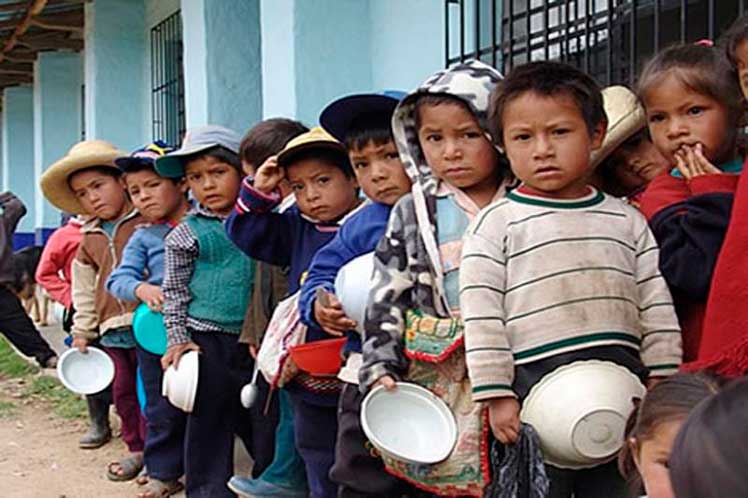A statement from the press office of that international institution indicates that the document, prepared by the World Network Against Food Crises (GNAFC), will take stock of this problem that affects humanity, with the assessment of its trends, the key factors that condition it and the risks associated with it.
The number of people facing acute food insecurity will be specified, which, according to the note, remains persistently high, endangering sustainable development and the progress achieved in previous years.
This report warns that the intensification of war conflicts and insecurity, the devastating impact of extreme weather disasters caused mainly by the El Niño phenomenon and economic crises, such as skyrocketing inflation and volatile food prices, darken the outlook of 2024.
The report also highlights crises that require immediate action, such as those in Gaza, caused by Israel’s attacks, which have already caused more than 34 thousand deaths and generated famine, as well as Sudan, which last year faced the worst deterioration in terms of the number of people pushed into acute hunger.
The Food Security Information Network (FSIN) also collaborates in the preparation of this report, and represents the opinions of 16 of the world’s main humanitarian and development organizations.
During this next high-level FAO event, food security leaders from organizations of the United Nations, the European Union, as well as government agencies and intergovernmental organizations will participate, the source adds.
ef/lam/ort









